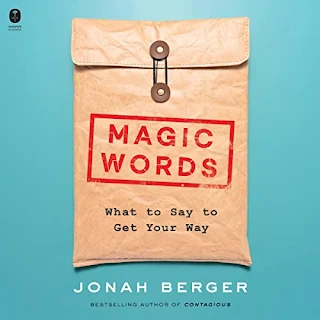* Copy courtesy of Text Publishing *
The Name of the Sister by Gail Jones is about an unknown woman who is sighted on a deserted highway outside of Broken Hill in rural New South Wales. A passing trucker stops to render aid to the woman who is traumatised and unable to talk. The media is ablaze with the story as families and friends of the missing from within Australia and abroad claim the unknown woman Jane is their sister, daughter, wife, mother, friend.
Angie is a freelance journalist in Sydney who begins to write about Jane's re-appearance from the point of view of those who have had their hopes crushed after learning Jane is not their missing loved one. Supporting character Bev is Angie's best friend and a cop, who happens to be assigned to the case and travels to Broken Hill to investigate Jane's identity and where she came from.
This sounds like another great Australian crime fiction novel with two strong female characters, but let me tell you, I needed a dictionary by page 6 to look up the word 'contrapuntal' and it didn't stop there. There were moments where there was a particular turn of phrase I especially enjoyed, like this one from Angie:
"Their conjugal irritation was mutual, and both needed by some edifying alternative to be reminded of who they were." Page 74However, moments like conjugal irritation were fleeting, and I needed to frequently stop reading and reach for a device to look up words like: lunette, propinquity, ziggurats, raddled (yes it's a word), maunder, ineluctable and interregnum. Other new to me words were: obduracy (I was hazy on this one so had to check the meaning), lacrimarium, cartouche and invidious.
I enjoy learning new words, however Angie's internal thoughts started to feel like an intellectual flex by the author when combined with the lines of poetry, quotes and double helpings of introspection. In fact, this quote from Angie's inner thoughts perfectly describes the writing style of The Name of the Sister:
"And the fact that she was composed of all this mixed-up cultural stuff: drifting phrases, lines from songs, literary quotations, rhymes and rhythms, scraps of image, nothing that really passed for coherent thought." Page 75The novel was definitely coherent, but this intellectual flotsam and jetsam peppered the page when I really wanted to get down to Jane's story. Couple this with the internal musings from Angie on missing women in general, the intrusion of journalism in true crime, the contrast between the urban streetscape and rural landscape, her mess of a marriage, and the malevolent predation of women and my patience started to wear thin.
The focus on feminism and misogyny was a little too heavy handed for me but is timely and will deeply resonate with many readers. Here Angie reflects on Bev's role:
"She'd been an officer most of her adult life and must surely have known what to expect: how a woman is intruded upon, how a woman is presumed known, and how what is unknown incites anger, or desire, or the wish crudely to expose." Page 5Broken Hill is described as parched, inhospitable and empty-looking so you might be thinking this an odd cover design for an erudite rural mystery. Angie's love of white ibises and the ancient Egyptian culture (Thoth in particular) is the inspiration for this literary design although I didn't think it was a good fit for the story within.
The denouement was engaging and I enjoyed the action and plot development at the end, however overall I found this pretentious and ostentatious. I've enjoyed literary fiction in the past so I don't think I'm unsuited to the entire genre, but The Name of the Sister by Gail Jones is high-brow literary crime fiction which I found to be full of Angie's internal contemplation and cogitation that failed to engage my interest. I'm clearly not the right audience for The Name of the Sister which might be called a literary masterpiece in the hands of other readers. Gail Jones is a celebrated Australian author but I don't think I'll be exploring any more of her novels.












































